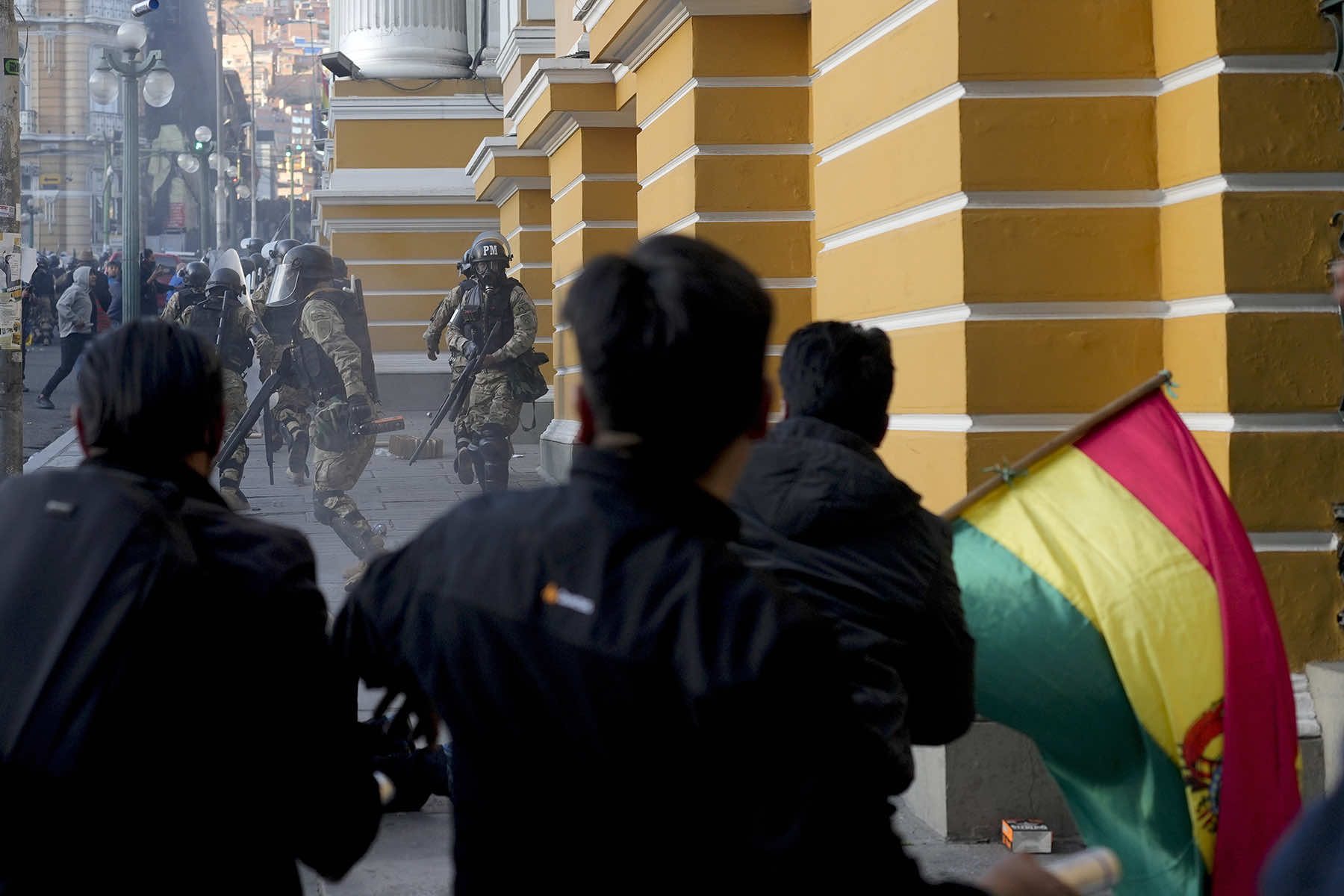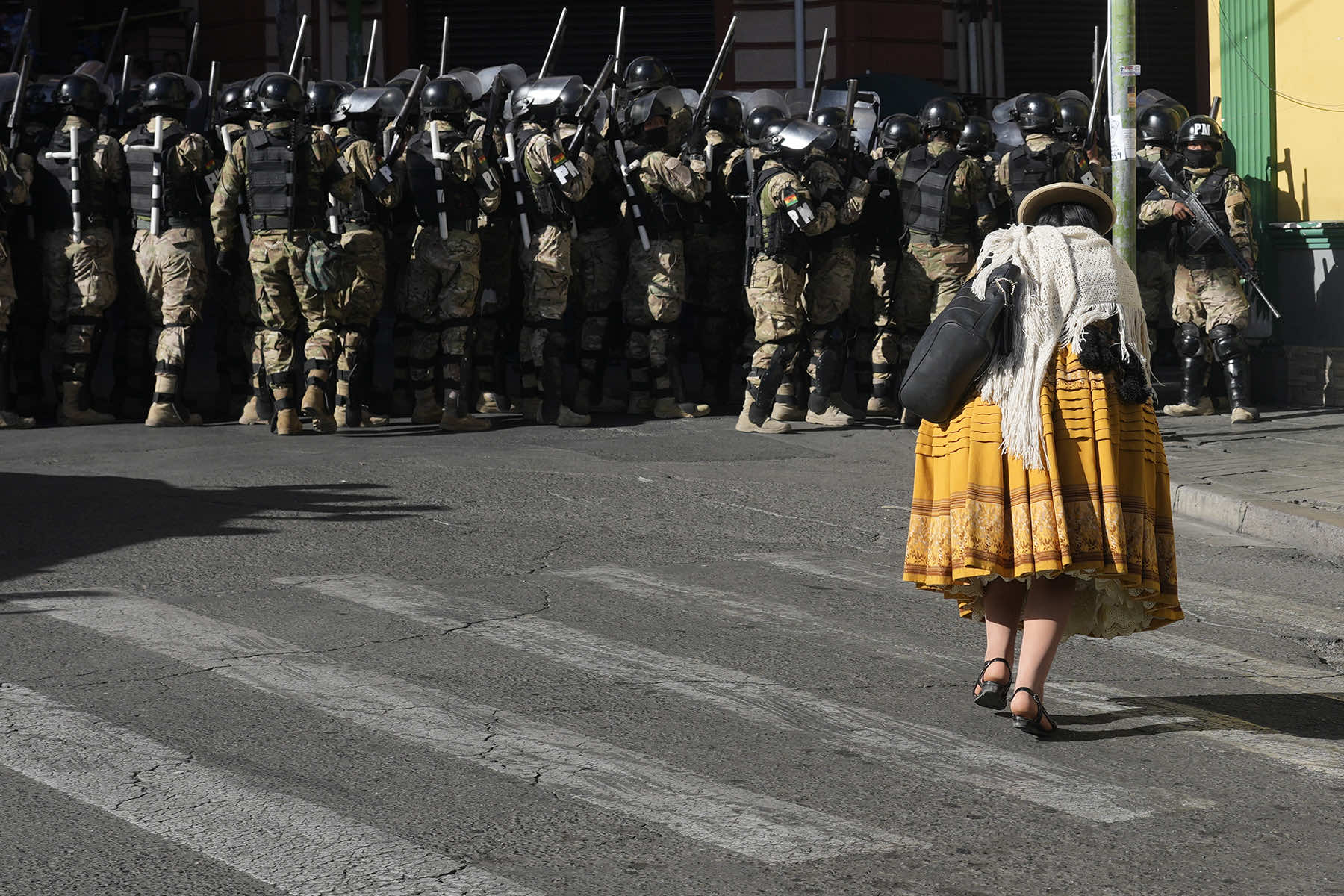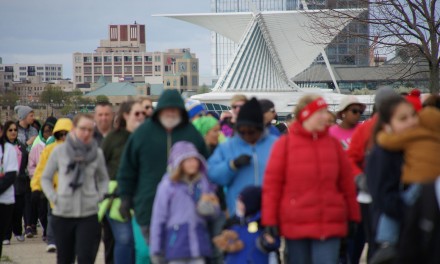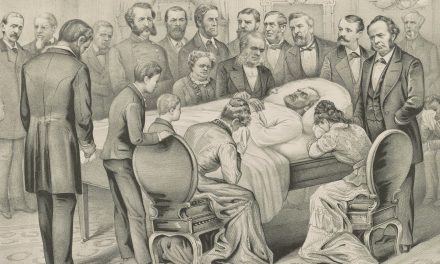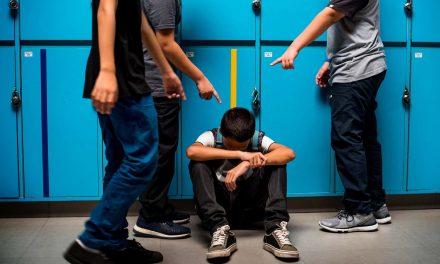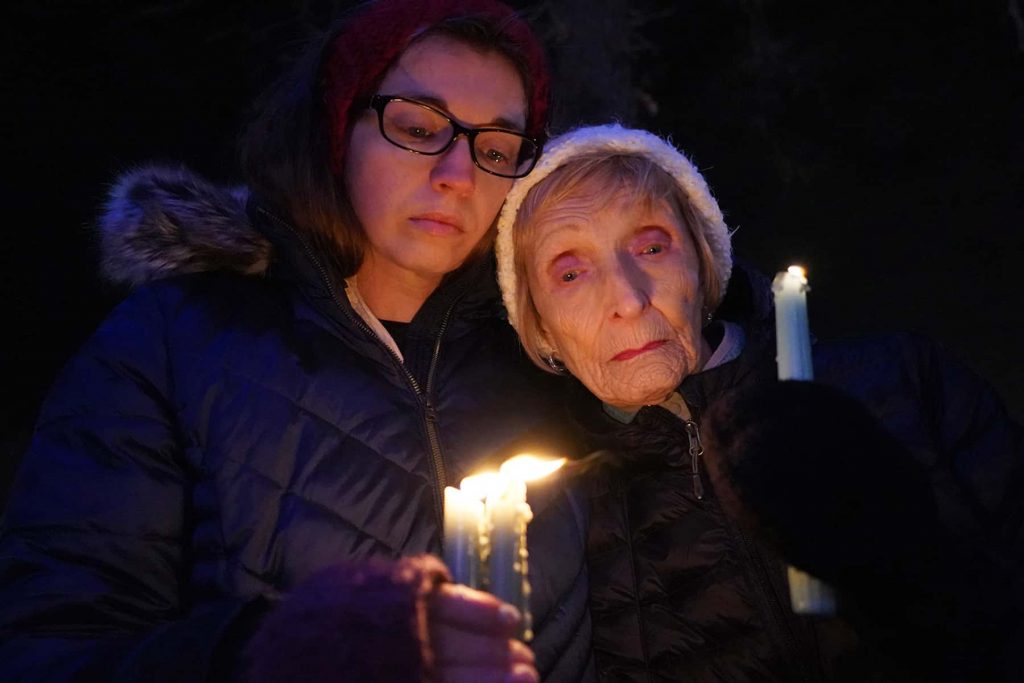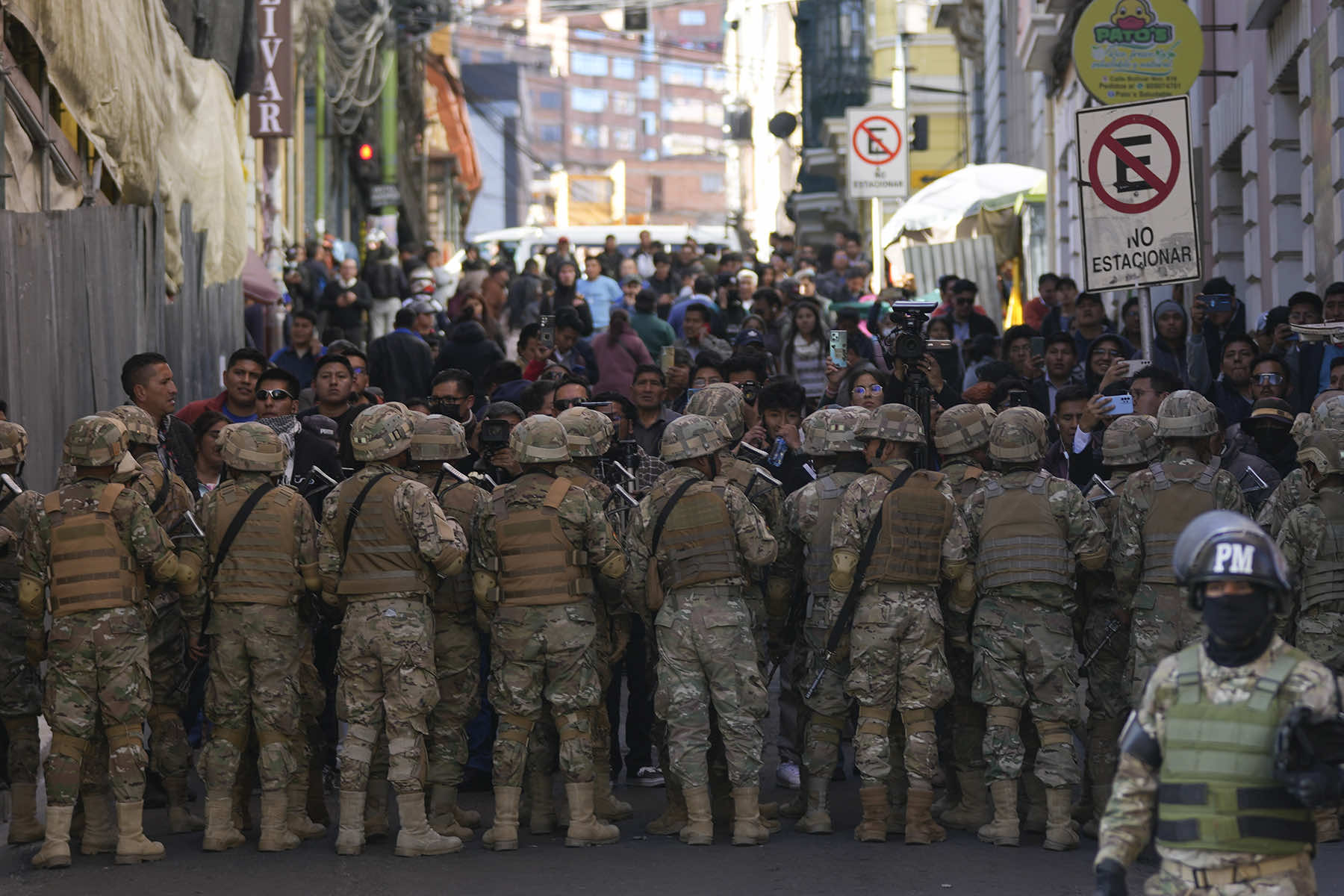
Bolivia’s Presidential Palace and main plaza in La Paz were under siege by its top military general and a group of soldiers on June 26.
After an intense three-hour standoff that escalated with an armored vehicle and soldiers attempting to break down the palace doors to enter the building, the Bolivian President, Luis Arce, and his security forces resisted the coup attempt and ultimately arrested the general, the head of the Navy, and a dozen soldiers.
JUNE 26, 2024: AN ATTEMPTED COUP IN BOLIVIA
Sadly, the brief effort to overthrow the democratically-elected government is nothing new to Bolivians. According to many sources, Bolivia has experienced nearly two hundred coup d’états since its independence in 1825.
When asked why he led this latest attempt to overthrow the government, the general stated that he was trying to “restore democracy and free our political prisoners.” One of those political prisoners was arrested for leading what the current government considers a coup just a few years ago that led to the killing of at least twenty-two people and injuring hundreds more.
While this coup attempt may have failed, it likely has shaken the Bolivian people and further eroded their trust in its institutions. As I watched it unfolding, I was transported back nearly twenty years ago to a period of intense political turmoil.
TWENTY YEARS AGO: MY MEMORIES OF POLITICAL INSTABILITY AND TRANSFORMATION IN BOLIVIA
During the tumultuous three years that I lived there, Bolivia had three presidents as the country experienced the forced resignation and exile of one after violent clashes, the subsequent resignation of his vice president after persistent protests and blockades left him unable to perform his duties, and the historic election of the country’s first-ever indigenous president. This moment was both a political and cultural milestone, which dramatically changed the course of the country and its political landscape.
Living as a foreigner in Bolivia, I found myself deeply immersed in the lives of Bolivians from diverse ethnic, cultural and political backgrounds. Bolivia, the Latin American country with the largest share of its people being indigenous, presented a unique societal dynamic. I lived in Santa Cruz de la Sierra, a city in the eastern part of the country that had rapidly grown from around 25,000 to nearly 2 million people over 25 years, most of whom were not indigenous.
While Bolivia is home to thirty-six indigenous peoples, the most prominent, the Quechua and Aymara, are traditionally from the western part of the country in the Andes Mountains. Santa Cruz became the epicenter of resistance to President Evo Morales and his Movement for Socialism (MAS) party.
Over the past 20 years, political identities in Bolivia, much like in the United States and around the world, have become increasingly polarized and entrenched. This polarization has led to greater intolerance and resistance to compromise, a heightened potential for political violence, and moments like the recent coup attempt, further deepening divisions and mistrust in governmental and military institutions, as well as within communities and even families.
These divisions have caused significant disruptions in daily life. Reflecting on the past, I recall a chance encounter at a film festival with Vice President Carlos Mesa, who assumed power after President Gonzalo Sánchez de Lozada fled the country amid societal pressure and military crackdowns on protests.
Mesa, a historian and journalist turned vice president in a conservative administration despite his moderate left-leaning sympathies, inherited deep political mistrust.
While Mesa was a popular journalist with a willingness to compromise and even reform the Constitution, his inability to govern was evident as widespread protests, including blockades of major roads, paralyzed the country, leading to shortages of food and water and bringing society to a standstill.
Eventually, Mesa chose to resign despite his efforts to find moderate solutions as he could not become untethered from his former running mate and political party in the eyes of the protestors and many Bolivians across the country.
Mesa’s resignation paved the way for the historic election of Evo Morales, Bolivia’s first indigenous president. Morales’ administration marked a significant shift from the historical political status quo, which had favored private and foreign investment in the country, to an era of nationalizing natural resources like natural gas and oil. His policies focused heavily on poverty reduction and social investments such as improving literacy and life expectancy.
However, these changes also sparked deep-seated hostility from political elites who had long held power and wealth, and the regional and ethnic populations that suddenly found themselves facing a grassroots movement of indigenous peoples with presidential power.
HOW POLITICAL VIOLENCE IMPACTS THE LIVES OF ORDINARY PEOPLE
During this period of political instability prior to Morales’ election, I, along with many of my colleagues from Spain, faced evacuation by the U.S. and Spanish embassies, which we ultimately refused. This situation left me disheartened and temporarily paralyzed by uncertainty. The work I was doing, and the relationships I was building with children who had been neglected by their families and the system, were jeopardized by the political chaos.
Reflecting on those times and the current events in Bolivia, I am reminded of the enduring and profound impact of political instability on individual lives, particularly in a country where high levels of income inequality and poverty already make accessing basic needs challenging for many people.
The consequences of events like this most recent assault on the seat of government often lead to extremes. On one hand, people become more entrenched in their beliefs that one political party or ideology must be defended at all costs or that it must be overthrown due to its corruption or failure to meet the people’s needs and demands.
On the other hand, people become disenfranchised due to their belief that government cannot work for the people as it is either seeking to advance its own power or cannot retain that power long enough to implement and sustain the policies that have real impacts on people’s lives.
These two different mental models or deeply held beliefs, the first often known as “us versus them” and the second as “determinism” or “fatalism,” emerged often among my colleagues and even the boys that I worked with in Bolivia.
GROWING POLARIZATION AND MARGINALIZATION IN POLITICAL ARGUMENTS
Whether that was an argument between or about people identified as conservatives and socialists, capitalists and redistributionists, or ethnically divided between Indigenous peoples from the West and people from European descent in the East, I could feel the polarization growing that often dehumanized or marginalized the other.
As the “us versus them” mentality deepened, it exacerbated identity politics that made it harder for people to hear one another’s story and unique experiences, their needs, concerns and aspirations. Instead, it led people to see those neighbors, friends, and even family members as part of a “mega-identity” usually defined by their race, ethnicity, and political or religious affiliation.
Through this “big sort,” a term popularized just years after the election of Evo Morales that illustrates this phenomenon of people engaging only with those that share their social, political and cultural values, we have seen an erosion of trust and increased “otherization” of people that do not fit into those shared identities. Ultimately, this has made political violence more likely as it dismisses each individual’s lived experience, exacerbates divisions, and discourages compromise.
If we are to end this cycle and normalization of political polarization that can culminate in political instability, societal uncertainty, and even violence, we must get back to showing empathy and understanding to the people in our lives and communities with whom we may not always agree.
While there are many systemic and political changes needed, I think back to the many difficult conversations that I had with my friends, colleagues, and boys in Bolivia as we often disagreed about the politics and policies of that moment. While we often came to very different conclusions, we were able hear the very personal journeys that we each had that informed why we held the values and beliefs that we did.
In humanizing our positions, we are reminded that we all deserve a voice in our democracy so that our stories are heard, represented, and honored. While Bolivia reminded me of this again this week, we all should be reminded that this is not a phenomenon that exists only in faraway places, and that we can all contribute to a society where political violence is no longer tolerated.
Luke Waldo
Juan Karita (AP)
Overloaded: Understanding Neglect is a Milwaukee-based podcast series that aspires to build a shared understanding of neglect, its underlying root causes, and how they overload families with stress.

